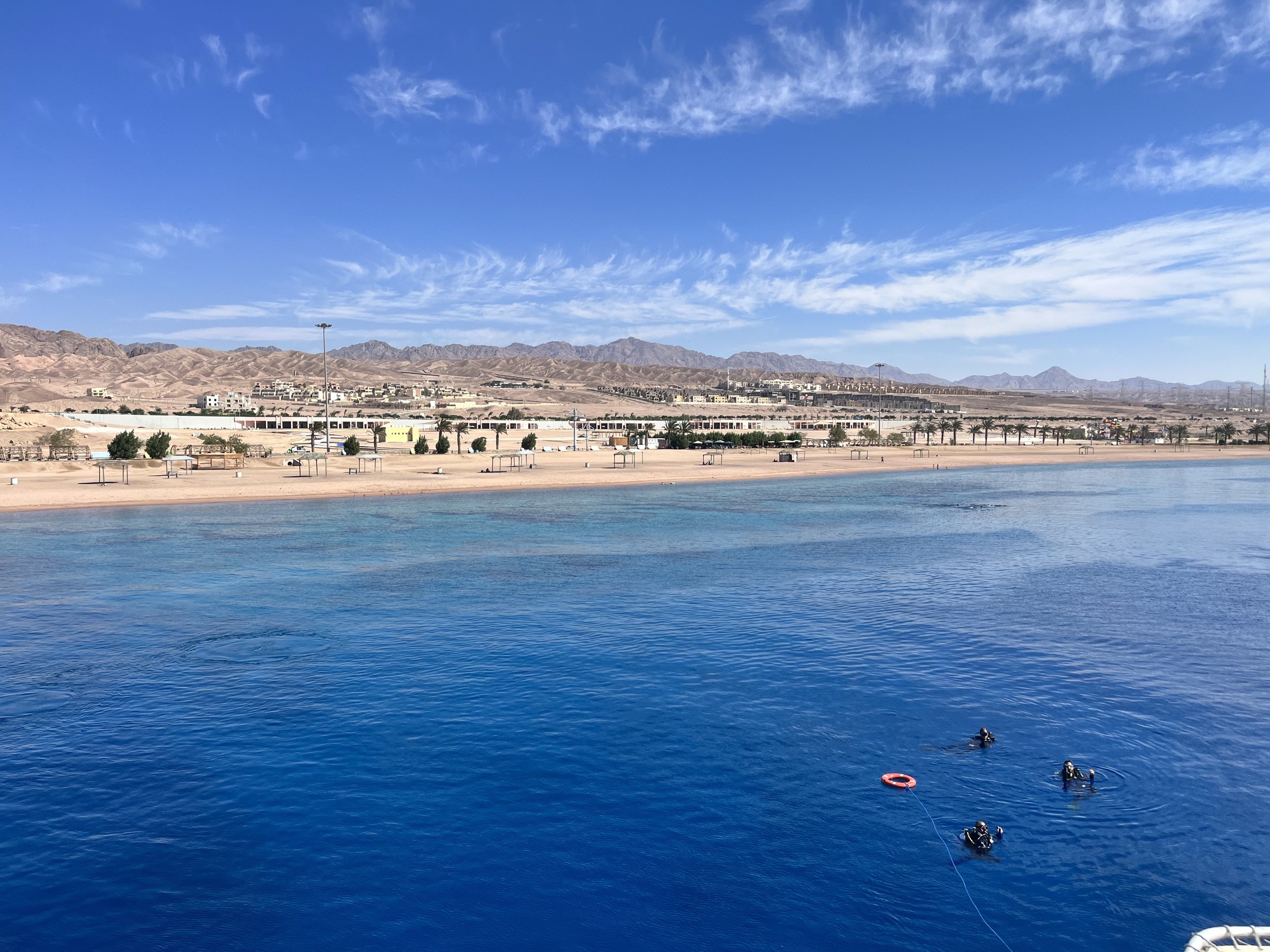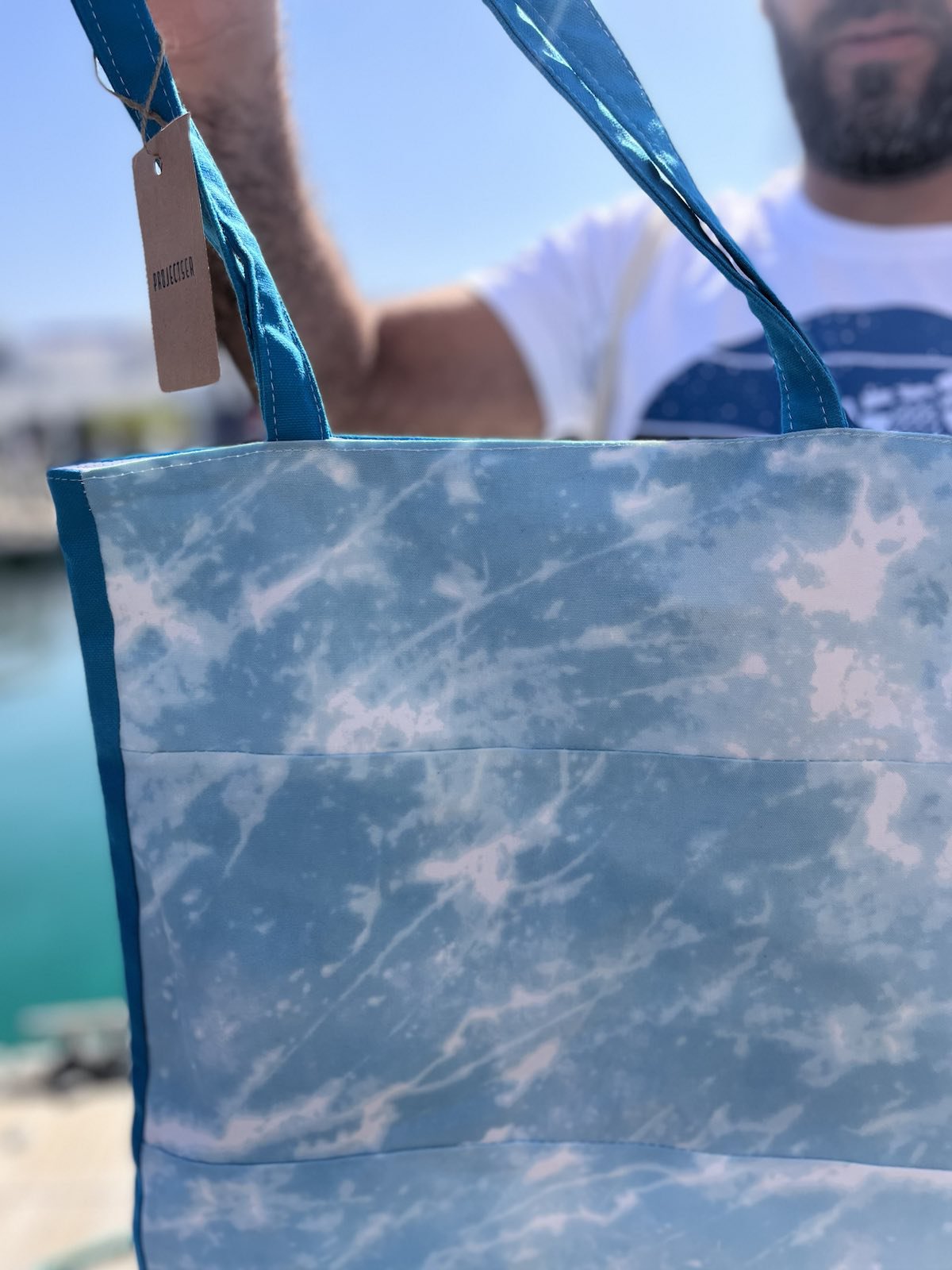
How Jordanian divers protect one of the world’s last coral refuges
The Red Sea off Jordan is an underwater paradise, yet more and more plastic waste is threatening the sensitive ecosystem. A group of Jordanian divers is fighting against it.
The yacht Diversity leaves the harbour of Aqaba, the only coastal town in Jordan. To the right is the Israeli resort of Eilat, framed by barren mountains; in the Red Sea, a boxfish makes leisurely circles in absurdly clear, turquoise water.
The boat soon anchors just offshore, directly in front of Aqaba’s electricity plant, and suddenly everything happens quickly: the passengers don wetsuits, pass around gloves and cloth bags, and then, one by one, dive in. They all have one mission: to collect as much rubbish as possible in 30 minutes.
Led by 34-year-old Beisan AlSharif, these are the women of Project Sea – an initiative born two years ago when AlSharif, a keen diver, and her friend, Seif Al Madanat, began to collect rubbish every time they dived. It is now a community of more than 150 volunteers, with local women forming its heart.
“There’s not one dive with a female participation of less than 50% – which is amazing for a Middle Eastern country like Jordan,” says AlSharif.
Although Jordan is considered to be one of the more liberal countries in the region, the predominantly Muslim country still only ranks 126th out of 146 countries in the World Economic Forum’s Global Gender Gap Index. Female economic participation is low and, in most of Jordanian society, women must conform to the traditional role model of wife and mother.
“Gender stereotypes and societal expectations do exist in Jordan and have influenced perceptions about certain activities, including diving,” says Hana Gammoh, one of the divers.
“However, these stereotypes are evolving, and the notion of what women should do or are expected to do is becoming more inclusive and diverse.”
Since her first clean-up dive, Gammoh says she has never received anything other than “constant support and enthusiasm from everyone around us”.
Together, the divers have removed more than seven tonnes of waste; most of it plastic, such as disposable cups, bottles and bags. Another group of women then benefits from recycling the waste – Palestinians living in the Jabal el-Hussein refugee camp, in the capital, Amman, who give a second life to the material by creating tote bags from it.
Read more: The feature was published in The Guardian in July 2023 as part of the Seascape: state of our oceans-series. Click here to read the full feature.
Auch auf Deutsch habe ich über die Taucher und Taucherinnen geschrieben - unter anderem für die Frankfurter Rundschau. Hier geht’s zum kompletten Beitrag.
Pictures: John Goodwin






